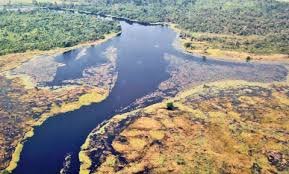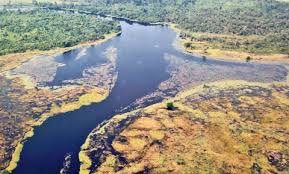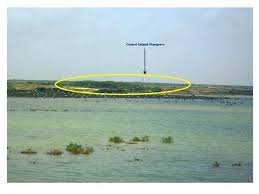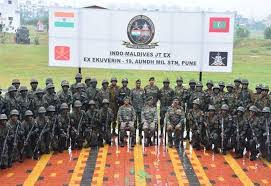Ivory Coast Joins UN Water Convention as 10th African Nation
Introduction to Ivory Coast’s Milestone
The Ivory Coast, officially known as Côte d’Ivoire, has recently become the 10th African country to join the United Nations Water Convention. This significant move highlights the country’s commitment to sustainable water management and international cooperation in addressing water-related challenges. The UN Water Convention, formally known as the Convention on the Protection and Use of Transboundary Watercourses and International Lakes, aims to promote the sustainable management of transboundary water resources and foster cooperation among countries sharing these resources.
Implications for Ivory Coast’s Water Management
Ivory Coast’s accession to the UN Water Convention marks a pivotal step in its water governance strategy. By joining this international treaty, the country is poised to enhance its collaboration with neighboring nations on water issues. This includes sharing data, aligning management practices, and addressing cross-border water pollution and disputes. The move is expected to bolster Ivory Coast’s efforts in tackling water scarcity, improving water quality, and ensuring the sustainable use of its water resources.
Impact on Regional Cooperation
The Ivory Coast’s entry into the UN Water Convention is not only significant for the nation but also for the entire African region. As the 10th African member, Ivory Coast contributes to a stronger collective effort in managing transboundary water resources across the continent. This growing regional participation underscores the importance of cooperative frameworks in addressing shared water challenges, which are crucial given the varying climate conditions and developmental needs across African nations.
Challenges and Opportunities Ahead
While joining the UN Water Convention presents numerous opportunities for Ivory Coast, it also comes with challenges. Effective implementation of the convention’s guidelines requires robust institutional frameworks, capacity building, and financial resources. Ivory Coast will need to develop and enhance its water management policies and practices to fully benefit from the convention. However, the country’s participation also opens avenues for international support, technical assistance, and funding to address these challenges.
Conclusion
Ivory Coast’s accession to the UN Water Convention is a significant development in its journey towards better water management and regional cooperation. As the 10th African nation to join the convention, Ivory Coast aligns itself with global efforts to address water-related issues, setting a precedent for sustainable and cooperative water resource management in Africa.

Why This News is Important
Strengthening International Cooperation
Ivory Coast’s accession to the UN Water Convention is crucial as it strengthens international cooperation in managing transboundary water resources. This cooperation is vital for addressing the complex and often contentious issues related to shared water bodies. By joining the convention, Ivory Coast aligns itself with global standards and practices, fostering better collaboration with neighboring countries.
Enhancing Water Resource Management
The move signifies a commitment by Ivory Coast to improve its water resource management. Access to the convention’s framework allows the country to adopt best practices for sustainable water use and pollution control. This is particularly important for Ivory Coast, given the challenges it faces with water scarcity and quality.
Regional Impact
As the 10th African nation to join the convention, Ivory Coast’s participation has a broader regional impact. It strengthens the collective effort among African countries to manage shared water resources effectively. This can lead to more cohesive and cooperative approaches to addressing water issues across the continent.
Opportunities for Support and Funding
Joining the UN Water Convention opens opportunities for Ivory Coast to receive international support and funding. This can help the country address challenges in water management and infrastructure development. The convention also provides a platform for technical assistance and knowledge sharing.
Historical Context
Background on the UN Water Convention
The UN Water Convention, established in 1992, is a key international treaty aimed at fostering cooperation and sustainable management of transboundary water resources. It provides a framework for countries sharing water bodies to collaborate on issues such as pollution control, water allocation, and conflict resolution.
African Participation in the Convention
Prior to Ivory Coast’s accession, nine African countries had joined the convention, reflecting a growing regional recognition of the importance of transboundary water management. The inclusion of Ivory Coast as the 10th member highlights the increasing commitment of African nations to address shared water challenges collaboratively.
Key Takeaways from Ivory Coast Joins UN Water Convention
| Serial Number | Key Takeaway |
|---|---|
| 1 | Ivory Coast has become the 10th African nation to join the UN Water Convention. |
| 2 | The UN Water Convention promotes sustainable management of transboundary water resources. |
| 3 | Ivory Coast’s participation enhances regional cooperation on water management issues. |
| 4 | Joining the convention provides Ivory Coast with access to international support and best practices. |
| 5 | The accession reflects a broader trend of African countries strengthening collective water resource management efforts. |
Important FAQs for Students from this News
1. What is the UN Water Convention?
The UN Water Convention, formally known as the Convention on the Protection and Use of Transboundary Watercourses and International Lakes, is an international treaty designed to promote sustainable management of transboundary water resources. It encourages cooperation among countries sharing these resources to address challenges such as pollution, water scarcity, and disputes.
2. Why did Ivory Coast join the UN Water Convention?
Ivory Coast joined the UN Water Convention to enhance its water management practices and foster international cooperation. The accession aims to improve the country’s handling of water resources, address issues related to transboundary water bodies, and benefit from global best practices and support.
3. How many African countries are now members of the UN Water Convention?
Ivory Coast’s accession has increased the number of African countries that are members of the UN Water Convention to ten.
4. What are the benefits for Ivory Coast in joining the UN Water Convention?
The benefits for Ivory Coast include improved water resource management, enhanced regional cooperation, access to international support and funding, and the adoption of best practices for sustainable water use and pollution control.
5. How does Ivory Coast’s membership impact regional water management in Africa?
Ivory Coast’s membership strengthens regional cooperation on transboundary water management, helping to address shared water challenges more effectively. It contributes to a unified approach among African nations in managing water resources and tackling issues such as pollution and water scarcity.
Some Important Current Affairs Links


















